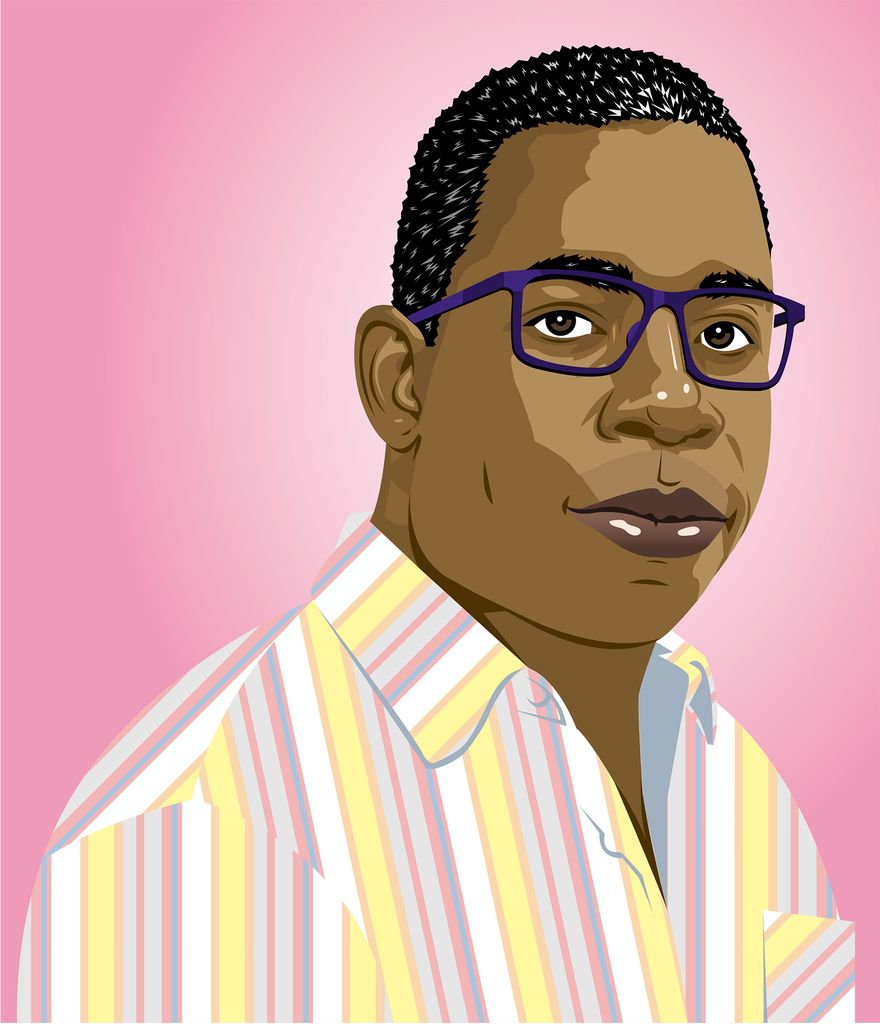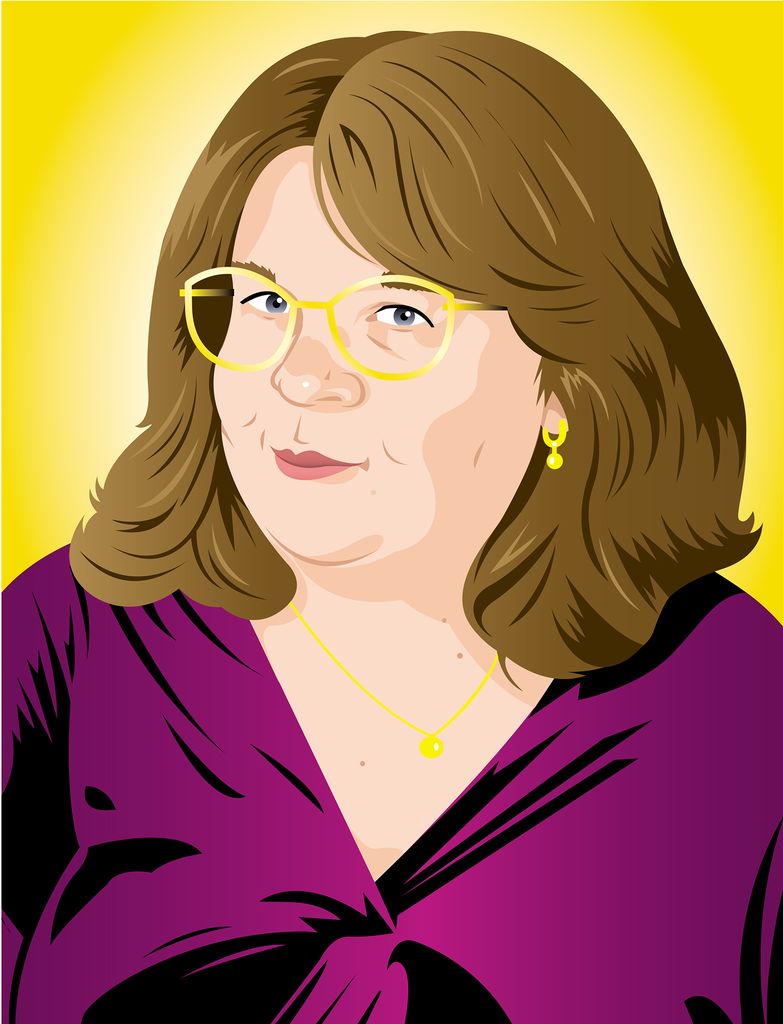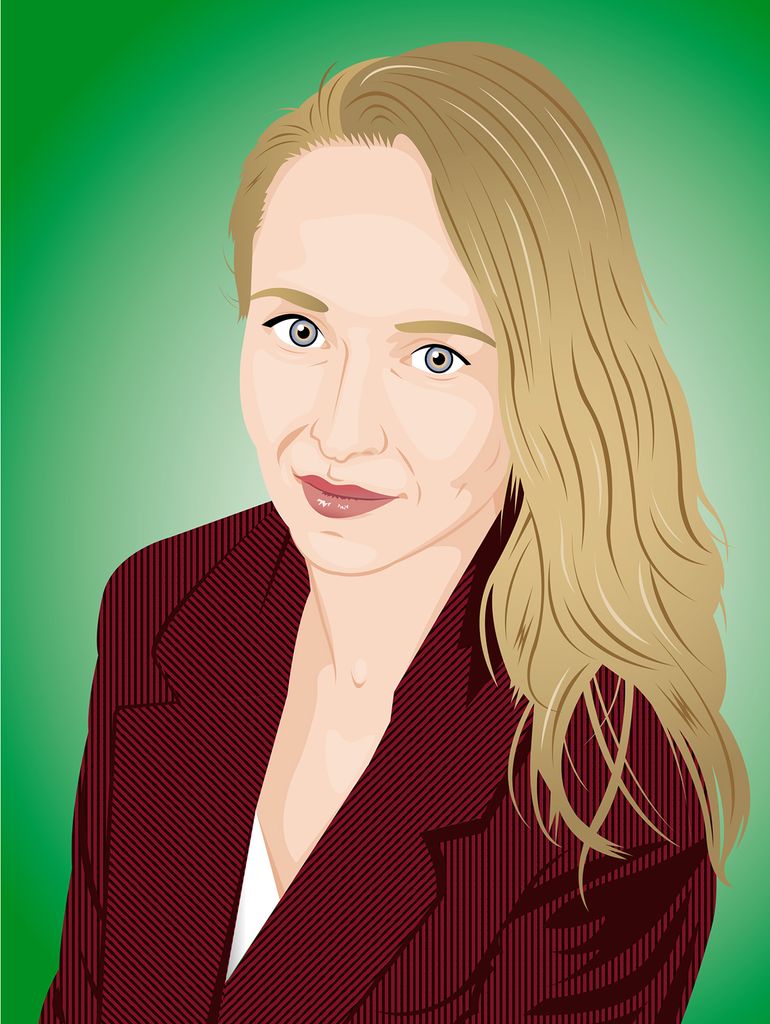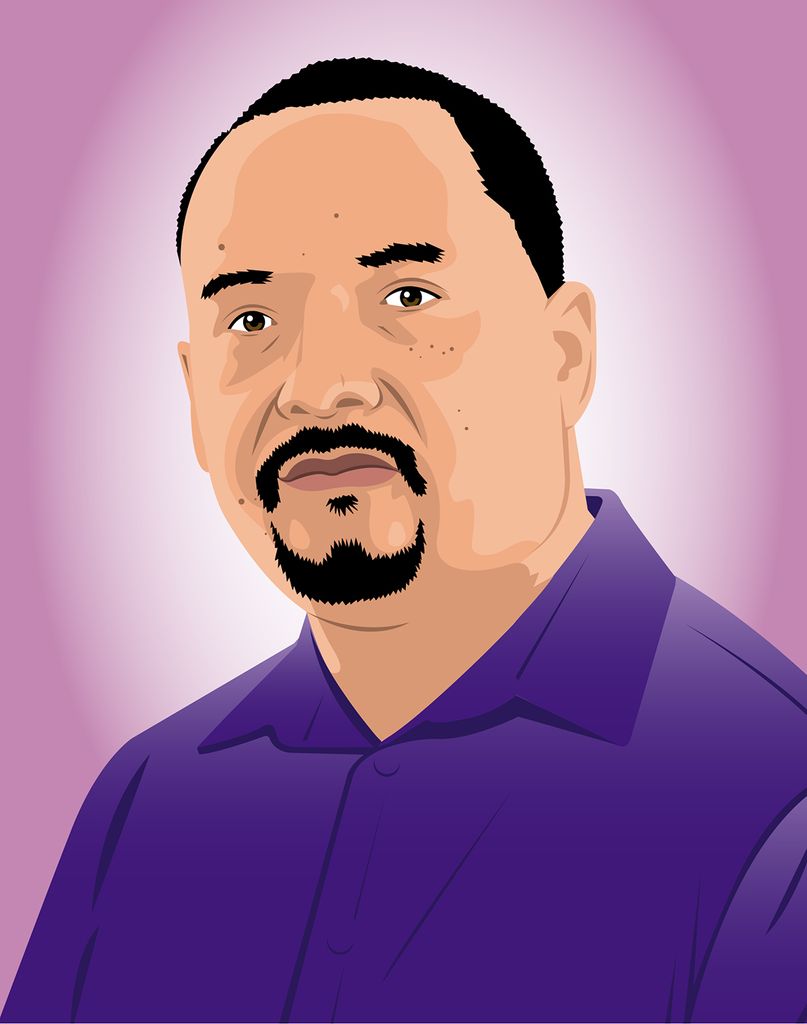Instrumental Impacts
Creating culturally relevant curricula. Building students’ confidence. Four music educators from around the world share their teaching philosophies and insights with CFA magazine

From left: Roger N. Williams, Amira Ehrlich, Lennox Vanterpool, and Yvanna Mycyk. Illustrations by Quick Honey
Instrumental Impacts
Creating culturally relevant curricula. Building students’ confidence. Four music educators from around the world share their teaching philosophies and insights with CFA magazine
Roger N. Williams

Jamaica
For more than 15 years, Roger N. Williams has been dean of the School of Music at Edna Manley College of the Visual and Performing Arts in Kingston, Jamaica, which includes undergraduate programs in music performance and music education. Williams (’22) comes from a family of musicians and educators: his mother is an elementary school teacher, and, as a child, he started taking piano lessons after watching his father at the keyboard. He earned bachelor’s and master’s degrees in music performance before enrolling in CFA’s Doctor of Musical Arts (DMA) in music education program. “I am a performer, but education was always there,” he says. “Everything I do would lead back to: how am I going to teach? The two things for me work hand in hand.”
Williams was instrumental in developing the curriculum and building the faculty at Edna Manley College’s School of Music. The performance curriculum is about more than mastering an instrument. “It’s important to gain the necessary techniques to manipulate your instrument, but ultimately, you’re expressing music,” he says. “Technique in and of itself means absolutely nothing if it doesn’t support musical expression.”
Williams turned to BU’s DMA program because he is interested in building out the research program at Edna Manley College’s School of Music and one day expanding its programs to offer graduate degrees. His dissertation was about the disconnect between the established music curriculum in Jamaican classrooms and students’ culture systems. “I’m very interested in culture and education, and how the two things interact within a specific area or region,” he says. Williams focused on three public secondary school music classrooms in Kingston, observing the impact of a culturally responsive teaching framework developed by noted scholar Geneva Gay, which involves incorporating students’ lived experiences and customs into the lessons.
“I was seeing how teachers operate within the school system while ensuring they use culture as a part of their dissemination of information and, at the same time, looking at what culture means,” Williams says. He found that teachers and students had different ideas of what is culturally relevant. “Teachers are insisting on using reggae and folk music to give students that grounding, but students are looking at things in a very different way,” he says. “For them, rock and rap are big parts of their culture now. Not to mention Jamaican dancehall music and K-pop.”
But Williams notes that the three schools are in a major urban center; what constitutes culturally relevant curriculum depends on where a school is. “It’s the teacher’s responsibility to say, ‘This is what I think they should be learning because this is traditional Jamaican culture, but this is what they understand. How do the two things merge?’ It’s important that we understand where students are coming from.”
Williams is bringing what he learned through his dissertation into the curriculum for music education students at Edna Manley College, emphasizing fairness, equity, and culturally responsive teaching in the classroom. “Coming out of a postcolonial society where, in the early days, it was a privilege to even get an education—it just means a lot to me to see that students have access to music education within their schools,” he says.
Amira Ehrlich

Israel
Like Roger Williams, Amira Ehrlich considered culturally relevant teaching practices in her BU DMA dissertation, “Pray. Play. Teach: Conversations with Three Jewish Israeli Music Educators”—and she brought what she learned to schools in her home country, Israel. Ehrlich (’18), dean of music education at Levinsky-Wingate
Academic College in Tel Aviv and a member of the Board of Music Education in Israel’s Ministry of Education, examined the music curricula at three high schools serving Hebrew-speaking Jewish populations.
“In Israel, schools are socioreligiously separated,” she says. “Secular Israeli Jews have their own school system, as do modern Orthodox Jews, ultra-Orthodox Jews, Muslims, Druze, and Christians.”
“You might think, well, if the school systems are different, and the curricula are different, they’re culturally grounded,” Ehrlich says. “But with music education in Israel at the high school level, there’s only one curriculum for all of the schools. I wanted to know why this is, and how it plays out.”
She recalls interviewing a senior member of Israel’s Ministry of Education about the origins of the standardized music education curriculum for her dissertation. “The education system became socioreligiously segregated in 1954,” Ehrlich says. “When it happened, they made the decision about which school subjects will have specialized culturally adaptive curricula, and which subjects are so-called neutral. I asked why civics education, history, and literature have different curricula for each school system, but music doesn’t. He said, ‘Music is so neutral, there’s no need for culturally specific education.’ Music education can never be neutral, and we cannot pretend that it is.”
Ehrlich also observed three music teachers at high schools serving modern Orthodox, ultra-Orthodox, and secular Jewish populations. She brought the teachers together in focus groups: “I asked them, ‘Are we really teaching the same thing?’ What is the significance of teaching Haydn’s symphonies in the context of a modern Orthodox Jewish school, in an ultra-Orthodox Jewish school, and a secular Israeli Jewish school? We were all trying to uncover the hidden meanings of teaching this same Western classical curriculum for these different communities.”
Ehrlich says that her dissertation work helped the teachers become more aware of how their lessons are culturally situated, and each of them changed their teaching practice as a result of her study. “One of them even went so far as to be leading part of a group of modern Orthodox Jewish Israeli music teachers who came together and offered the Ministry of Education a new curriculum, specialized for their communities,” Ehrlich says. “Prior to this, there was this ignoring of the fact that music education is culturally grounded.”
Ehrlich is proud of the work she is doing at Levinsky-Wingate Academic College. “I feel that I have a great opportunity to impact Israeli music education, through the students that are enrolled in our program and through our alumni,” she says. “Israel is a multicultural country, and we work with students who are Jewish, Christian, Muslim, Druze, Bedouin…. We get students from all over the country, and we send our alumni back out all over the country.”
She says she owes her philosophy, in part, from lessons learned from her dissertation supervisor, André de Quadros, a professor of music education; the late Susan Conkling, then a CFA professor of music education; and Lee Higgins, a former associate professor of music education who specializes in community music and is director of the International Centre of Community Music at York St. John University in England.
“They helped me understand that music is for everyone, and that what music educators are doing is helping people fill their musical needs,” Ehrlich says. “Every person has musical needs, and music educators are the people who are going to help you and facilitate your musical experience. This plays out in my hopes for my impact on Israeli music education.”
Yvanna Mycyk

Canada
After earning a bachelor’s degree in string performance at CFA, violinist Yvanna Mycyk went on to get a law degree from the University of Toronto. Practicing law was great, she says, but before long she felt the pull of a different field: music education. She’d been thinking about a string pedagogy course she had taken at CFA, which involved young students from Boston schools coming to BU for lessons. “I enjoyed that constructive feeling that you’re really helping build something when you’re involved in educating people,” she says. “I think it’s important for people to never feel like they have to limit themselves. One day, I announced I was going to go back to school for education.”
Today, Mycyk (’03) is director of operations, VSO Education & VSO School of Music, a music school that serves students of all ages. “The VSO School of Music is not just about symphonic music,” she says. “It has a great jazz and a great voice program, an incredible traditional Chinese music ensemble, and so much more.”
Until she assumed the director role in May 2022, Mycyk had also taught violin at the VSO School of Music.
As a violin instructor, she would think back to the CFA string pedagogy class. “One of the things I remember learning is being deliberate in how you describe techniques, like a bow hold, because we are doing these sculptural kinds of shapes that you need to do in a very specific way. My philosophy is that education is transformational, and we as educators need to find a way to help make that transformation happen,” she says. “I think it’s very important to meet every student where they are at right now and also understand that the sky’s the limit of what their potential is.”
Mycyk works with the VSO on educational programming for the community, including open rehearsals, during which people of all ages can watch the orchestra practice. “A polished product can be kind of hard to penetrate, but if people get to go and see it taken apart, see those inner workings, they get so deep into it,” she says.
She also oversees the teams making study guides for the music classes and designing other educational opportunities for area schools. For example, the VSO performs concerts especially for audiences of elementary school students, and orchestra members will go into the schools and speak to students after they’ve attended a concert. “I always talk about making that connection with the awesomeness happen.”
Lennox Vanterpool

Anguilla
Lennox Vanterpool founded the Morlens School of Music in 1989 to serve the youth of the Caribbean island Anguilla. Vanterpool, who named the after-school music program after his late parents—Morris, who had been a choir director and fife player, and Lenore—says it came out of a desire to give back to the community. “Even the slightest exposure to music, and the chance to become proficient in an instrument, will help build character and give lifelong opportunity,” he says.
Morlens offers instruction in an array of instruments, music theory, and composition. “Our motto is ‘playing is work,’” says Vanterpool (’11), who specializes in piano.
Each year, he offers a Music Matters recital series that allows his students to show off the fruits of their hard work and helps him give back on a deeper level by donating proceeds from the performances to community organizations in need.
“This island is naturally musical,” says Vanterpool, who was born and raised in Anguilla. “But sometimes I feel that not enough is really being done to advantage children who are naturally inclined to sing and play an instrument.” That’s where Morlens comes in, he says.
At CFA, where he earned a master’s in music education, “I was able to think about what it means to advocate for music education and the attending issues of justice and what it means to teach the whole child—all of these issues I was looking to explore.” In his book, Broken Chords: Education and Social Justice in Post-1986 Anguilla (2016), he examines his country’s educational system, including how music education is mostly found in after-school programs. “In my opinion, the arts, especially music, aren’t seriously addressed,” he says, “and that is unfortunate when we have such a rich musical culture.”
Vanterpool says that he uses music education to encourage his students to become well-rounded citizens. “We want to be able to bring out the best in every young musician,” he says. “We want to build their confidence. It’s wonderful to see their development through music education, to see that music is something that can inspire them to create, to reflect, to speak up.”